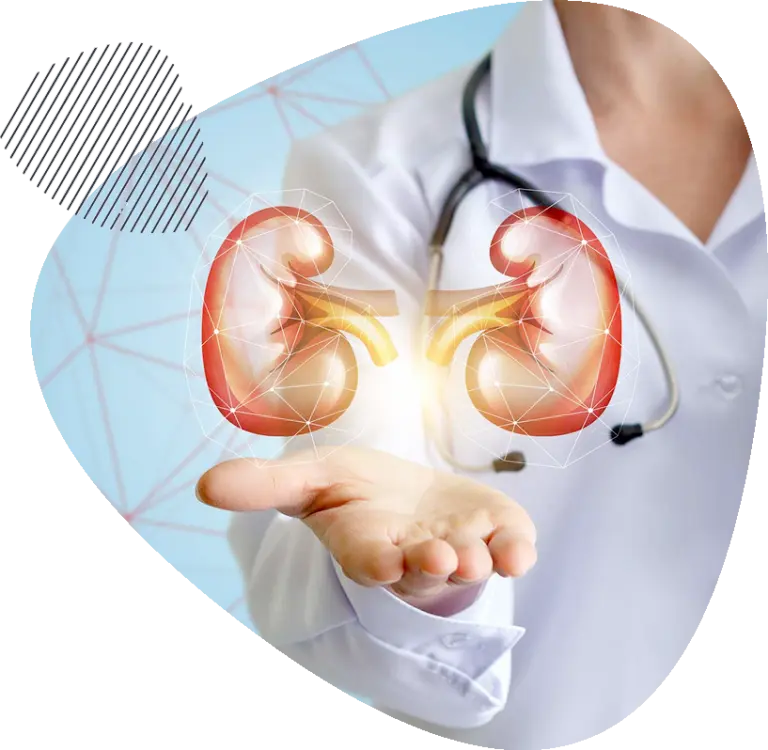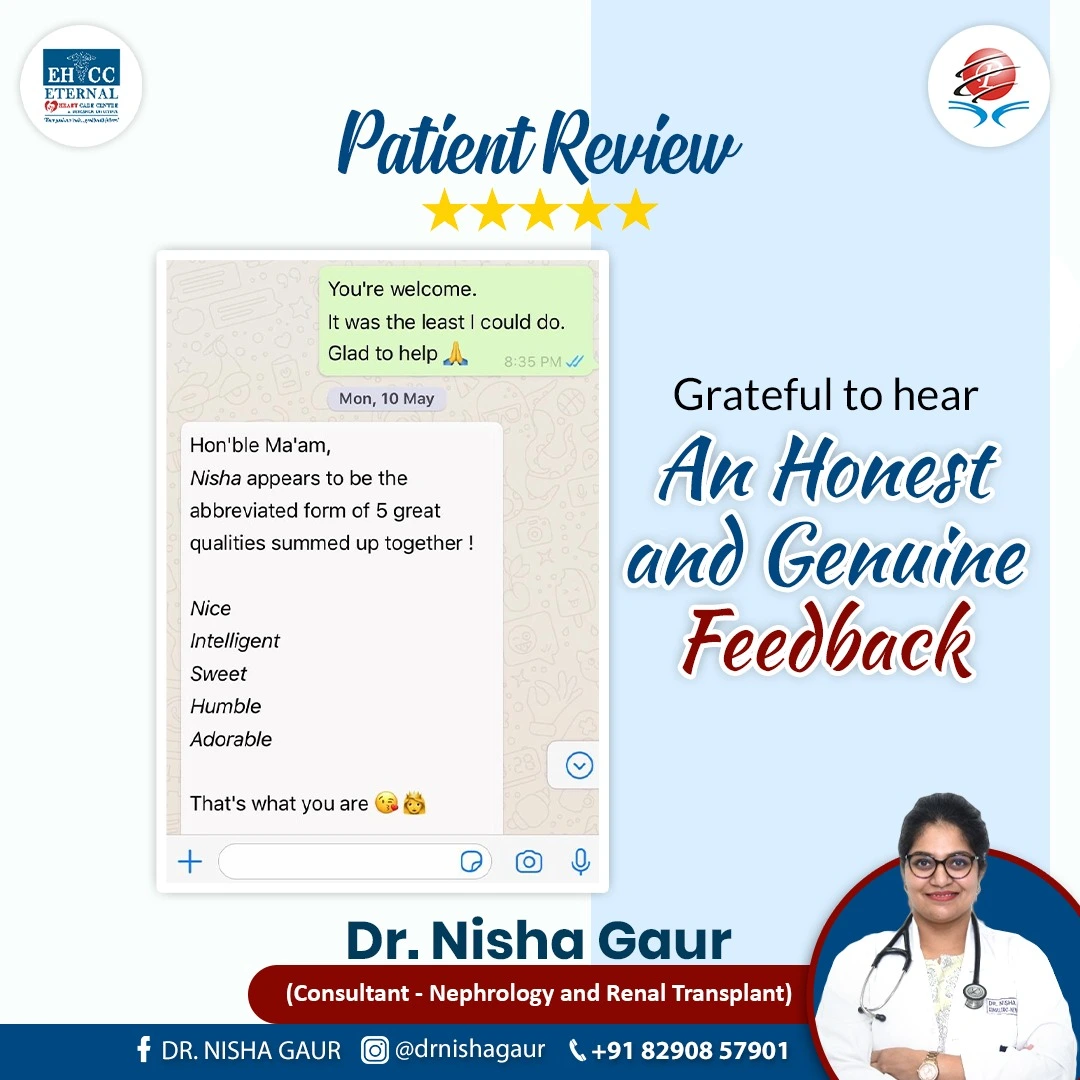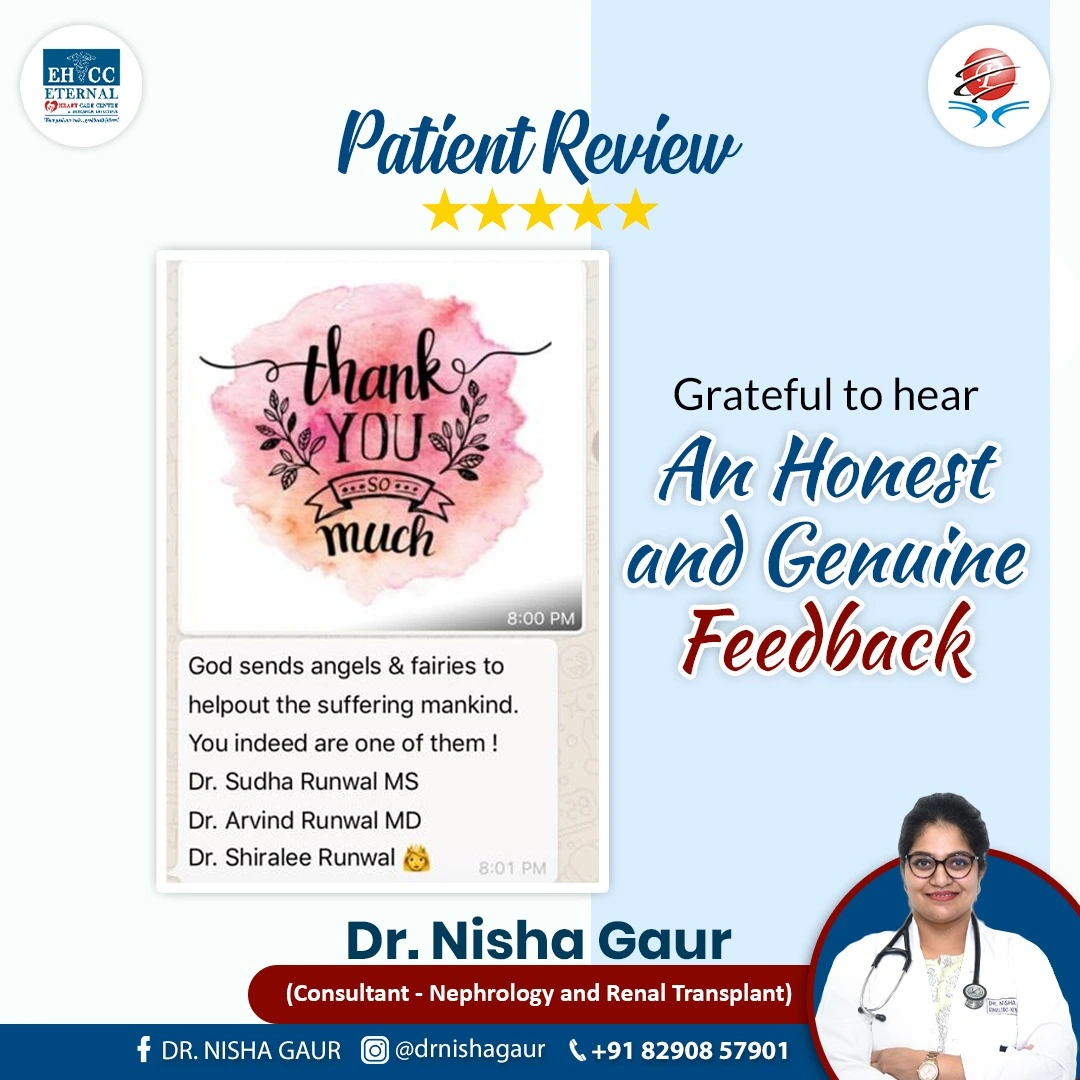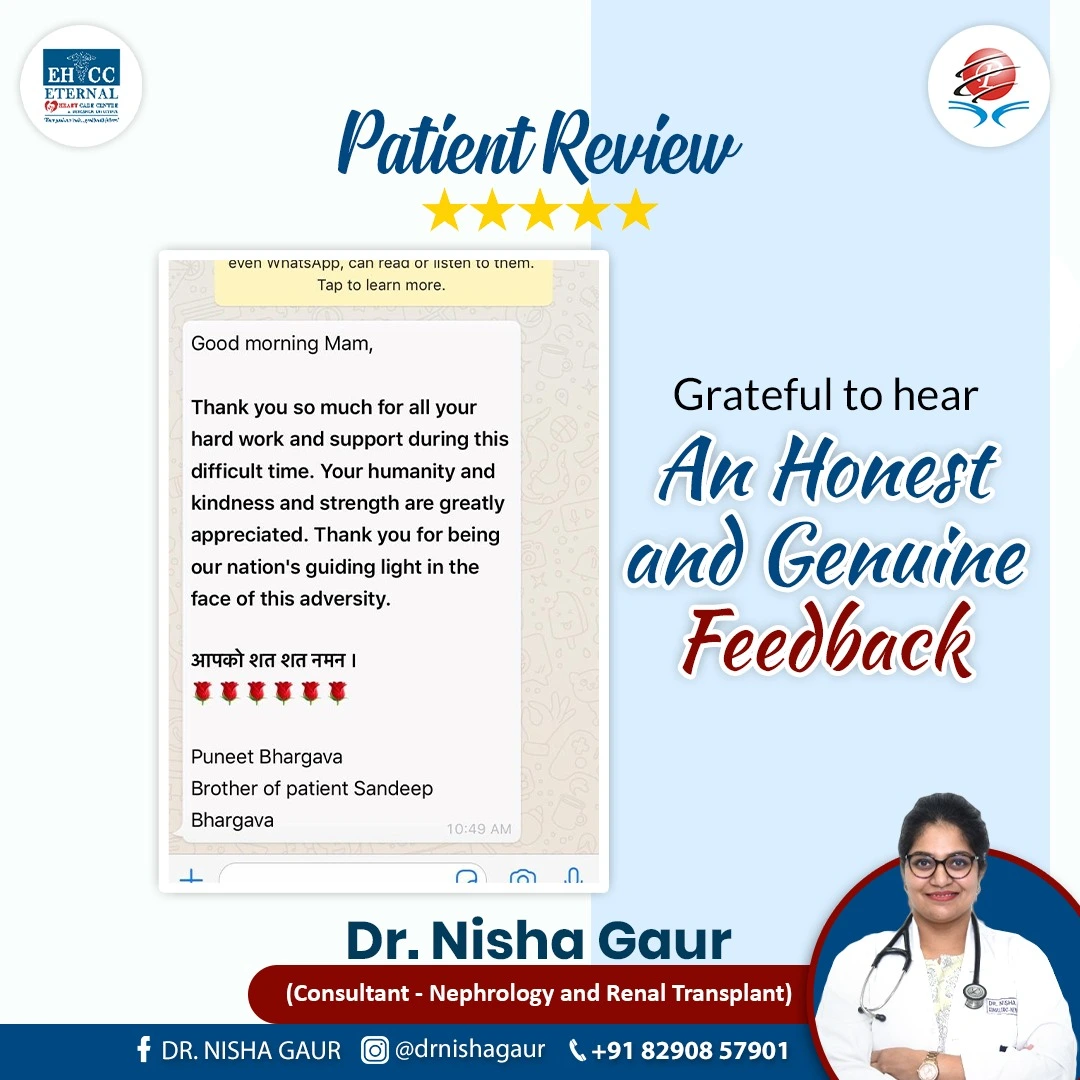
BEST NEPHROLOGIST IN JAIPUR
Dr. Nisha Gaur
Dr. Nisha Gaur is an expert Nephrologist in Jaipur. At present, she is working as a Consultant nephrologist in Jaipur, Rajasthan. She provides nephrology and renal transplant services at EHCC Eternal Hospital, Malviya Nagar and Aavi Neuro and Kidney Clinic, Vidhyut Nagar, DCM, Jaipur.
» MBBS and MD from govt. Medical College, Baroda ( Gujrat).
» DM in nephrology from SMS Medical College, Jaipur.
» Member of American Society of Nephrology.
» Member of Indian society of Organ Transplantation.
WHAT WE OFFER BY DR NISHA GAUR, the Best Nephrologist in Jaipur
Dr. Nisha Gaur has been doing outstanding services to patients from the very beginning. Handling all types of kidney disease from acute to chronic, Dr. Nisha Gaur is the primary choice of Kidney patients in the Jaipur region who provides specialized consultation at the Kidney Care Centre.
She specializes in treatments including Chronic kidney issues, Nephrotic syndrome, Transplants, proteinuria, hematuria, and electrolytes disorders. Dr. Nisha Gaur is one of the best Nephrologist in Jaipur.

Renal Consultation

SERVICES OFFERED
TREATMENT & PROCEDURES
- Kidney transplantation including ABO-incompatible transplant
- Treatment of Kidney transplant rejection cases.
- Chronic Kidney Disease and Hemodialysis
- Acute kidney injury
- Kidney stones and urine infections
- Intervention Nephrology – permanent hemodialysis catheter insertion, CAPD, Renal Biopsy
- Diabetic Nephropathy
- HypertensiveNephropathy
- Connective tissue disorder affecting kidney
- Glomerulonephritis causing protein in urine
- Onconephrology- cancer affecting kidney.

Happy Patients

Successfull Surgeries

Yrs. of Experience

Patient Support
Book An Appoinment
Schedule an appointment for Best & Timely Consultation.

PATIENT REVIEW



FREQUENTLY ASKED QUESTIONS
FAQ!
- According to the Best Nephrologist in Jaipur, Is there a special diet that is good for the kidneys?
Ans- The ideal kidney-friendly diet is fruits, vegetables, whole grains, low-fat dairy products, legumes, nuts, seeds, and soy products. You should limit sodium, fat, and cholesterol to keep your kidneys healthy.
2. What services does Dr. Nisha Gaur offer? As the best Nephrologist in Jaipur?
Ans- Dr. Nisha Gaur provides a wide range of Nephrology services, including diagnosis and treatment of kidney transplants, CKD, kidney biopsy, and more.
- What sets Dr. Nisha Gaur apart as the best Nephrologist in Jaipur?
Ans- Dr. Nisha Gaur is recognized for his extensive experience, advanced surgical techniques, and commitment to patient care. He consistently delivers outstanding results in the field of Nephrology.
- How can I schedule an appointment with the best Nephrologist in Jaipur?
Ans- Booking an appointment is easy. You can call our clinic or use the online appointment booking system on our website. Our staff will assist you in securing a convenient time for your visit.
- What should I expect during my first visit to the best Nephrologist in Jaipur?
Ans- During your initial consultation, Dr. Nisha Gaur will perform a thorough evaluation of your condition, discuss your medical history, and answer any questions you may have. He will then recommend a personalized treatment plan.
- What type of tests does the nephrologist use to learn about my kidneys?
Ans- The most common and basic tests that a nephrologist performs to diagnose your kidney disease are blood and a urine test. Further tests may be recommended by your nephrologist.





